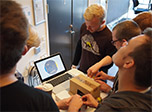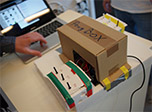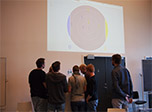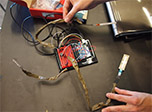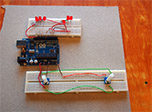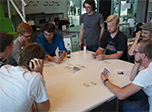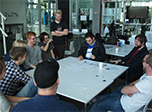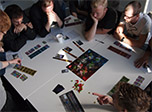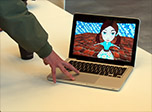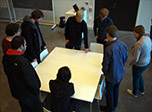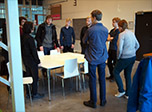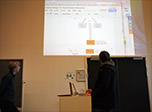Experimental Interaction (2013): Games that Challenge PlayEverything gets more interesting, challenging or intense the closer it gets to the edge, and play is no exception. The questions discussed here were what is (still) play and what is not (or no longer) play. We looked at one particular theory of play and discuss how, in which ways and to which effect a number of games push the boundaries of play. We then produced some conceptually-driven projects that do likewise. Notions of play that were challenged included play as a harmless waste of time confined to certain times or places. Games that question such notions are, for instance, the PainStation, professional sports, America's Army, pervasive/mobile gaming and live action role playing. Huizinga's concept of play was applied to the questions. It was argued that in addition to a number of characteristics that mark an activity as play, play is essentially a subjective perspective and individual decision of the player. Huizinga calls this special attitude the play spirit, which informs a player's actions and is in turn sustained by them. The clear distinction of play and non-play is elementary for play; it is not reducing participation or engagement but, on the contrary, enables them to occur. Play needs restrictions to create tension, like an artist's repertoire or an engineering problem. If there were no borders, nothing meaningful could happen. But it is the players who decide on these borders. The boundaries of play do not need to be physical or visible, in fact, they are conceptual in the first place - based on an agreement and understanding the players share. New/digital/mobile games do not challenge this concept, but provide it with a new appearance. They make it more obvious than traditional games that play is a concept, not only an activity.
The course developed conceptual aspects, creative processes and technical skills of game design. It covered critical, provocative and subversive aspects of cyberculture. Participants discussed theory, played (computer and non-computer) games, and conceived, designed and realized games that challenged play. The games were realized using a programming language of their choice. Hardware interfaces for the game could be constructed. Participants were free to decide what their works are about, e.g. genre and topic, local or online/network, single or multiplayer; they could create games (with scores and winning etc.) or playful (open-ended) artistic installations. Daniel Cermak-Sassenrath. Experimental Interaction: Games that Challenge Play, Course, ITU, Copenhagen, Autumn 2013. |
